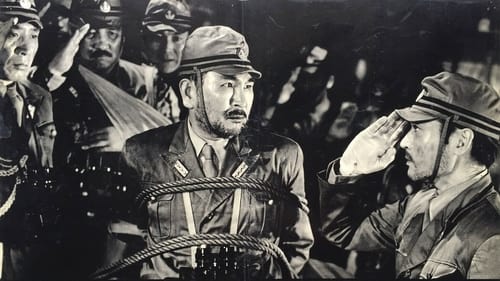
Colonel Ezaki
Horror film directed by Satoru Kobayashi. Kin'ya Ogawa served as Kobayashi's assistant on this film.

Koyama
젊은 양아치 신이치와 켄지는 경마장에서 손님 돈을 챙기고 도주한다. 그 도중 시게무네반 보스의 애인 유미와 우연히 알게 된다. 유미의 소개로 두 사람은 당장 그날 밤 예정된 권총 밀매 거래를 끝내고 구매자인 카지카와조에게서 권총을 강탈하는 데 쓴다. 한편, 권총 밀매인인 쿠로도 카지카와조에게서 권총을 되찾으려고 획책하고 있는데...

Crime film directed by Tatsuo Yamada for Shintoho.

Japanese film about a juvenile delinquent who becomes a part of the Japanese Self-Defense Forces.

Japanese crime film.

Japanese war film.

Lieutenant Kurosawa
During the naval battle of Midway in WWII, the battleship Mutsu was in its home port in Japan. The ship's officers and crew were frustrated at not being able to take part in the fighting. They had been held back by orders from the Naval Ministry, but there was also a plot by saboteurs, who were trying to prevent the sailing of the Mutsu. Director Komori developed a suspenseful plot by including a fictional adaptation of the Russian spy Richard Sorge, who had been captured in Japan and subsequently executed. Komori brings a fictional Russian spy to the screen by portraying him as a military attaché at the German embassy. As Germany was an ally of Japan in WWII, a secret agent being a mole in the German embassy is a perfect cover. The interaction of the saboteurs and the officers and crew of the Mutsu make an exciting story.

Japanese thriller.

Admiral Oikawa
In 1941, overpopulated Japan faces an economic boycott and its armed forces push further to the south. And despite negotiations between Japan and the U. S. A. war is declared with the attack on Pearl Harbour. Victories follow for Japan on land and sea and her forces push forward to the borders of India. But gradually the tide turns in favour of the Allies and after the atom bombings of Hiroshima and Nagasaki, Japan is compelled to accept the Potsdam Declaration and by the order of the Emperor agrees to unconditional surrender. Under the supervision of the occupation forces the International Military Tribunal opens in Tokyo to try the Japanese war leaders. Established in the cause of justice, and to prevent future aggressive wars the trials drag on for two and a half years. And on December 23, 1948, General Tojo and six other war leaders mount the thirteen steps to the gallows at Tokyo's Sugamo prison.



